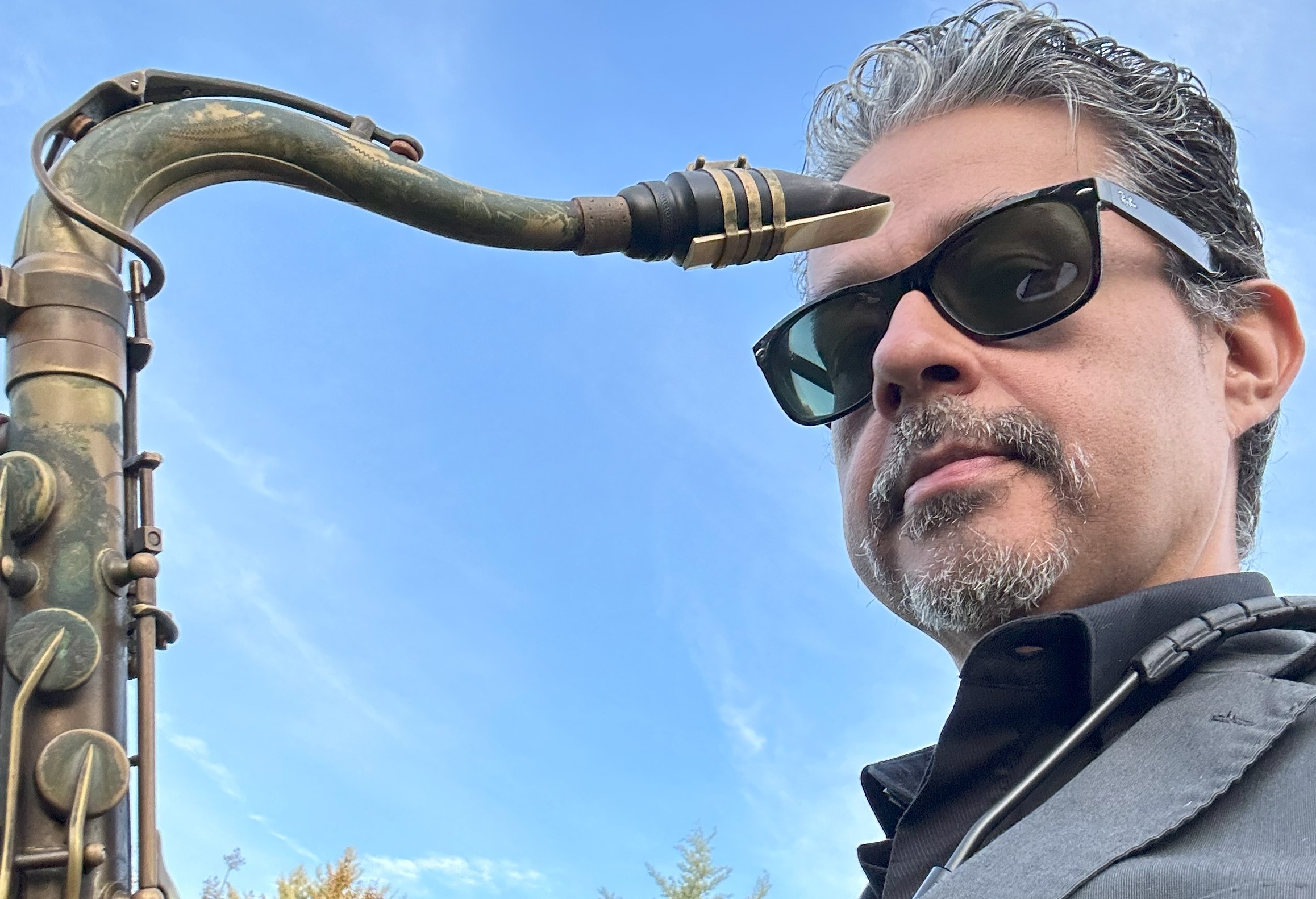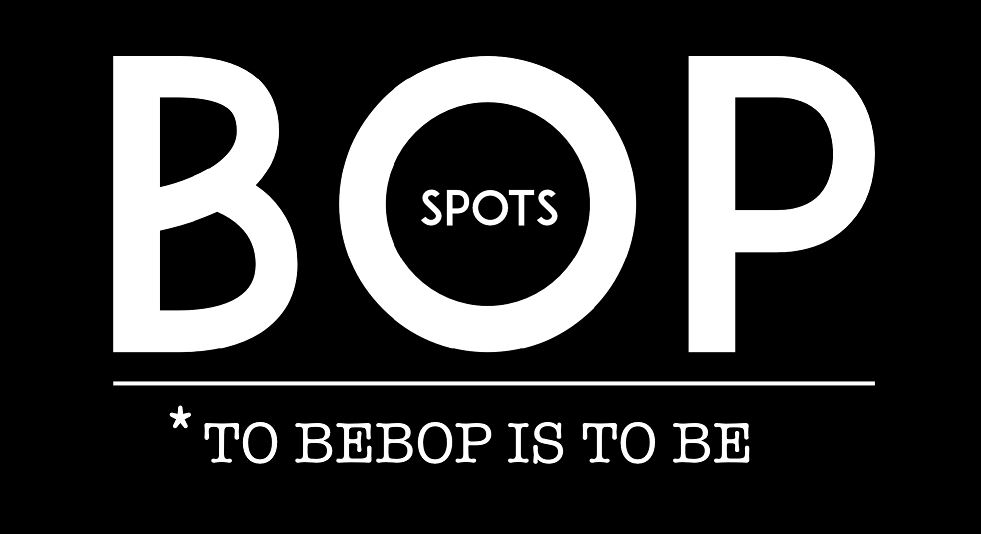
Interview With Gil del Bosque
By: Estefanía Romero
The Festival Internacional de Jazz Armando Núñez (FIJAN) 2024, presented the first of its main concerts with the great composer and saxophone player, Gil del Bosque, who came from Texas to catalyze the emotions of around 350 people, during his performance at the Museo Casa Redonda, in one of the most beautiful cities in Mexico: Chihuahua, Chihuahua.
The artist was very kind to share a few thoughts through a warm conversation, which I’m sharing now for you.

Estefanía: How did you work this ensemble? (Roberto Picasso (guitar), Ariel Esau Solis (counterbass), and René Aguirre (drums). It sounds so put together.
Gil: It’s nice that I got to play with them. They seem to be the top musicians. When we play this type of music, we practice being as good as we can in our instrument, right? Because we got to be able to improvise and improvise freely, you need to find a bit of control on your instrument. Usually, jazz musicians are at a caliber, each person will think very high when you practice this music because you have to be able to adapt to these persons. So… we’ve been practicing on our own for all our lives, son we come here, and we know the language. Jazz is a language!

E: You play such a clear bebop, you can feel every note. At the same time, you’re very musical. I love bebop but only a few times, because there are times when it stops being musical, musicians are trying to only go super fast or they go other places, but I think you’re looking a lot for melody, aren’t you?
G: I am! The saxophone is a very easy instrument to learn and to be very proficient on. So, when you do what you talked about, it’s usually saxophone players that are all over the place, and I could do that, but I find that melody is very important, and hearing the melody that I might have just played and trying to bring it back because that’s what people will remember, people can relate to melodies and I love beautiful melodies and I grew up with more soul, R&B, sort of soul jazz, that caught my attention first so I think that’s how I started.
Then I started branching off to musicians like Charlie Parker, Wayne Shorter and then Michael Brecker.

E: What led you to the saxophone?
G: That’s a good question. No one in my family played anything. I was like the first one that ever played. At the beginning it was hard because saxophones are expensive and my parents, we never suffered not having food on the table, but money was tight. They had a trumpet that we had laying around and my dad wanted me to play the trumpet. I was about to play the trumpet, but my mom, the day before, got me a saxophone and I guess I loved the sound, I guess at the beginning. Honestly, I just liked the way it looked, I was a kid, it was shiny… “this looks a lot nicer than the clarinet”, you know?
I started when I was 11 or 12, in the US that’s when you start the band, when you’re going to 6th grade. I was learning to play. Then when I got into high school, I was 14, I had to do the marching band and all that stuff that come with being in a band in the US.

E: What does the name “Armando Núñez” mean to you?
G: It means teacher, mentor, best friend, best man at my wedding, lots of things.
E: How did you two meet?
G: We met at UNT, in Texas. He was doing his master’s, and I was doing my undergrad. We met at a jam session, it was weird because we went and there were these guys from Mexico, from Nuevo Laredo and they were into jazz, but they were really into like singing popular, like that band, Sin Bandera, that ballad stuff… that’s when Armand and I stepped away and then we went to grab a burger. That’s how we met, 25 years ago.
We helped me out quite a bit and I tried to help him whenever he needed, he became a brother.

E: You mentioned during the concert that every time you listen to his music you get to see something else.
G: I guess I’m in a different time now, when I’m older, I know more. I’ve been doing this for a while. His music has always been very difficult, even to the point when we made the album I was, not mad at him but I was like “this is just hard!”, I was stumbling on it, and I would ask him for advice. But it’s until now…! As many concerts as I do in Austin, I always try to incorporate his music or maybe one or two compositions. Those one or two compositions in my study time, when I’m practicing, I go back and play his melodies and play whatever I remember, and I always find something that I like better, and I say: “oh! That’s what he was talking about! That’s what we meant”.
At the same time, he loved to laugh, his laugh was contagious. We liked to see movies, we had the same sense of humor, we loved The Simpsons. We shared a lot.
My biggest teacher was always Armando, he continues to be. He wrote books.

E: What are your current projects?
G: I’m working a lot with my quartet in Austin and I’m trying to get as much playing in different places. We’re getting known or being featured at many festivals. I’ve been focusing quite a bit on my instrument. I’m getting older and I feel more focused on my instrument, my practicing. At the same time, I’m playing with a lot of people, I hosted a lot of jams in Austin. There is a very famous jazz club, The Elephant Room, that’s been for like 35 years in Austin and their jam session is iconic. And I go like once a month and I meet a lot of musicians there.
Another thing that I really like to do is talking to little kids. I’m part of an organization called The Austin Jazz Workshop, we go and play concerts for students, 8 – 11. We go to all elementary schools in Austin and play concerts. One year we focus in one jazz composer, and we talk about what is jazz improvisation, and just teaching them about these composers. I found that one of the most rewarding things for me is to play for that age. I saw the impact that it has! It teaches them and it actually teaches me!

E: Is there anything you’d like to add?
G: I’m happy to be here. I’m happy that jazz is being heard, and that they’re doing what you’re doing. I think is important to spread the word and I’m happy to be doing that. And I’m happy that people like Armando brought jazz and made it what it is. Every year I come to Chihuahua, the caliber of these musicians just keeps getting better and better.

